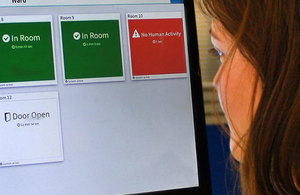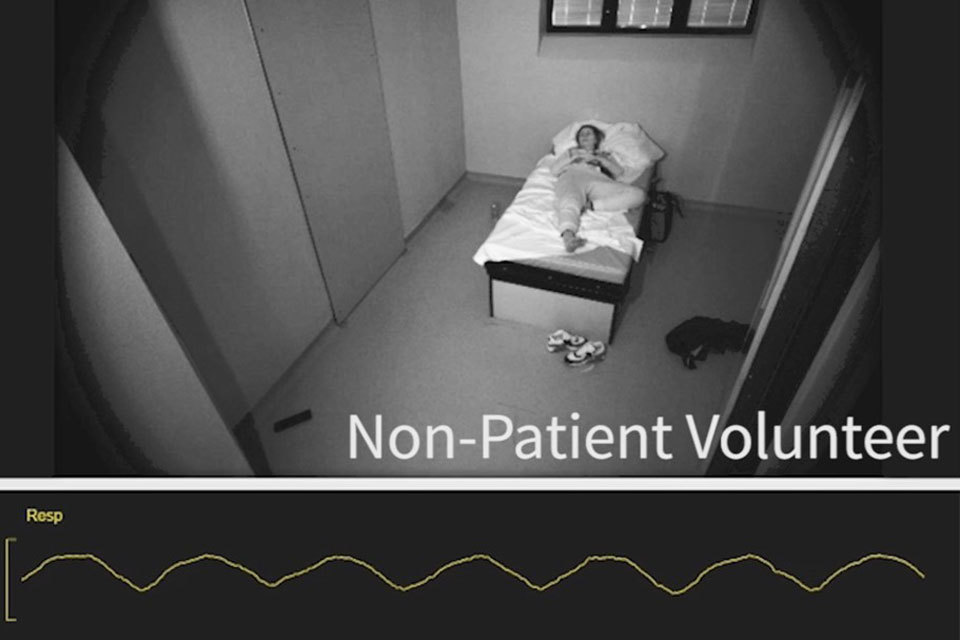Oxehealth: developing a better way to care for dementia patients
New technology helps medical staff to improve the safety of at-risk dementia patients through camera-based non-contact monitoring of their vital signs.

The Oxehealth activity monitoring system is improving the care of at-risk patients by remotely monitoring their vital signs and activity.
Every 3 seconds, someone in the world is diagnosed with dementia. Furthermore, dementia has now overtaken heart disease as the leading cause of death in the UK.
Caring for patients with the condition can be challenging, with monitoring often limited to time-consuming physical checks by staff. Now, Oxford-based company, Oxehealth, has developed a way to improve the care of patients by combining computer algorithms with optical sensors. This enables staff to monitor activity like getting out of bed or leaving a room, as well as the patient’s vital signs, heart rate and breathing rate in real time and to medical-grade accuracy.
Oxehealth offers software as a service (SaaS) solutions to professional carers who have a duty of care to a vulnerable person in a room. This enables carers to receive alerts when the system detects care-relevant events. They can then access a live video feed and choose to intervene if they decide it’s needed.
A world-first for patient monitoring
Hugh Lloyd-Jukes, chief executive, commented:
Oxehealth has achieved a world first. We have never before had the capability to constantly monitor a patient’s heart rate, breathing rate, activity and other routine data in this way.
We will, in time, fuse this data together using artificial intelligence so there’s no reason why we can’t use the same technology in the future to detect worsening dementia, or even its onset. This could give us a world where we can detect conditions such as dementia much earlier.
Patients could stay in their own homes or wherever they’re most comfortable without the need to come to hospital. That will save everyone a huge amount of time, money and stress.
Oxehealth is testing the software to remotely monitor patients on the dementia ward at the Manor Hospital in Coventry, which has been highlighted in a recent BBC documentary.
The work is in keeping with the government’s Industrial Strategy. This is seeking new ways to tackle dementia through the Industrial Strategy Challenge Fund to support healthy ageing, by offering funding opportunities for businesses and researchers to find solutions.
Technology to benefit hospitals and prisons
The same technology can also be used to improve the monitoring of people detained in secure mental health hospitals, prisons and police custody suites. These people are often at risk from self-harm, intoxication from drugs or alcohol, or underlying conditions, injuries and complications from medication.
It isn’t always possible to use contact devices with these high-risk subjects as they could use wired devices for self-harm or attacks on staff.
The Oxehealth solution, which was funded with help from an Innovate UK grant saw the company work with Broadmoor Hospital to refine the optical sensor system for use in secure mental health settings. It’s also being used in nursing homes and for remote care in patients’ own homes.

Oxehealth has been working to refine the optical sensor system for use in secure mental health settings.
A growth in sales and staff
The Oxehealth solutions that don’t need medical device certification became available to customers in 2017 and the company will launch a partner programme for resellers later this year. The vital sign functionality is subject to medical device certification and is not yet available to buy.
The response from investors has been impressive – in 2017, Oxehealth succeeded in raising £3.6 million. And, since starting work on this project, Oxehealth has more than doubled its staff to 25.
In August 2017, Oxehealth’s team won the Royal Academy of Engineering’s Colin Campbell Mitchell Award for the ‘greatest contribution to the advancement of any field of engineering’.